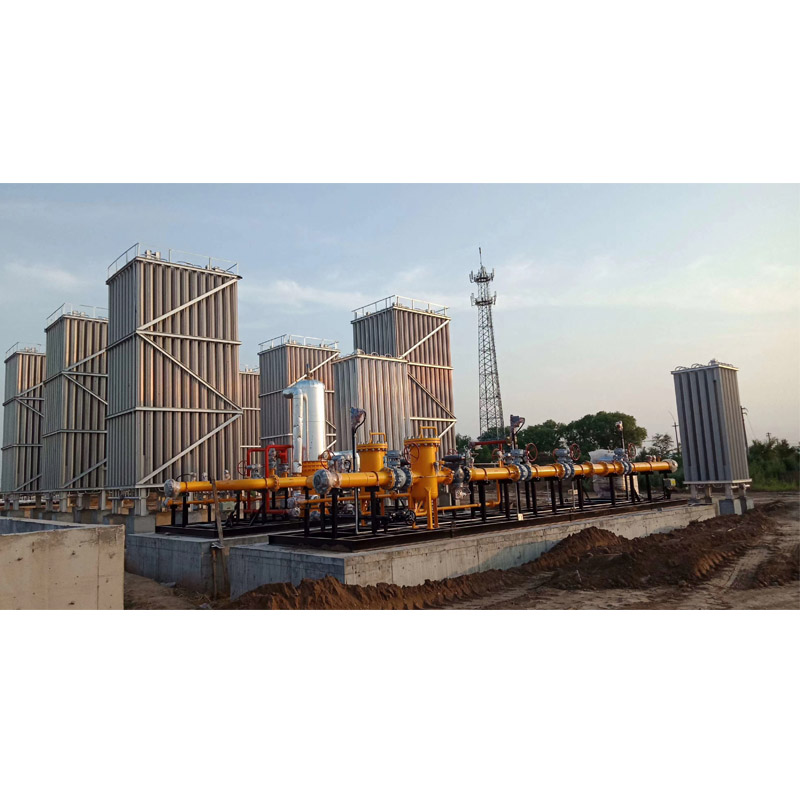
Dec . 04, 2024 16:37
Back to list
pressure pipe
Understanding Pressure Pipe Systems A Comprehensive Overview
Pressure pipes are critical components in various industrial and infrastructural applications, often serving as conduits for water, gas, and other fluids. Understanding pressure pipe systems is essential for engineers, project managers, and maintenance personnel involved in construction and infrastructure projects. This article provides a comprehensive overview of pressure pipes, their types, materials, applications, and maintenance considerations.
What are Pressure Pipes?
Pressure pipes are specifically designed to withstand the internal pressure exerted by the fluid they carry. These pipes are essential in systems where fluids are transported at high pressure, making them fundamental in industries such as water treatment, oil and gas, and manufacturing. The pipes are usually manufactured to specific standards to ensure safety and reliability under pressure.
Types of Pressure Pipes
Pressure pipes come in various types, each designed for specific applications and environments. Some of the most commonly used types include
1. PVC (Polyvinyl Chloride) Pipes Known for their lightweight and corrosion resistance, PVC pipes are commonly used in water supply and drainage systems. However, they are not suited for high-temperature applications.
2. HDPE (High-Density Polyethylene) Pipes HDPE pipes are flexible, durable, and resistant to a wide range of chemicals. They are often used in gas distribution and water supply systems.
3. Steel Pipes Steel pipes, including both carbon and stainless steel, are commonly used in high-pressure applications due to their strength and ability to withstand extreme conditions. They are often used in the oil and gas industry.
4. Ductile Iron Pipes Known for their excellent mechanical properties, ductile iron pipes are used in water distribution and sewage systems, providing a robust solution for high-pressure applications.
5. Composite Pipes These pipes combine various materials to leverage their strengths and mitigate weaknesses, often resulting in lightweight yet strong alternatives suitable for a variety of applications.
Applications of Pressure Pipes
Pressure pipes are employed in diverse sectors, including
pressure pipe

- Water Supply Systems Pressure pipes are fundamental in municipal water supply systems, ensuring adequate water distribution to buildings and facilities.
- Industrial Processes Many manufacturing processes require the transportation of fluids under pressure, necessitating the use of robust pressure pipe systems
.- Oil and Gas Transmission High-strength pipes are crucial for transporting crude oil, natural gas, and other petroleum products over long distances.
- Irrigation Systems In agriculture, pressure pipes are used to facilitate efficient water delivery to crops, optimizing irrigation processes.
Maintenance Considerations
Maintaining pressure pipe systems is crucial for ensuring their longevity and operational efficiency. Here are key maintenance considerations
1. Regular Inspections Routine inspections can help identify leaks, corrosion, and other signs of wear. Using advanced technologies like ultrasonic testing can enhance inspection accuracy.
2. Pressure Testing Conducting pressure tests can prevent catastrophic failures by ensuring that the system can safely handle the required pressures.
3. Preventive Maintenance Regular preventive maintenance, including cleaning and replacing worn-out components, can significantly extend the lifespan of pressure pipes.
4. Monitoring Systems Implementing monitoring systems that track pressure, flow rates, and other critical parameters can help detect issues early and avoid costly repairs.
5. Compliance with Standards Ensuring that all pressure pipe installations comply with relevant standards and regulations is vital for safety and reliability.
Conclusion
Pressure pipes are integral to many industrial and municipal applications, requiring careful consideration in their selection, installation, and maintenance. Understanding the various types of pressure pipes and their applications can help stakeholders make informed decisions that enhance safety and efficiency. Regular maintenance and adherence to industry standards are critical for ensuring the reliability of pressure pipe systems, ultimately contributing to the success and sustainability of infrastructure projects. As industries continue to evolve, advancements in materials and technologies will likely shape the future of pressure pipe systems, promising even greater efficiency and safety in fluid transport.
Next:
Latest news
-
Safety Valve Spring-Loaded Design Overpressure ProtectionNewsJul.25,2025
-
Precision Voltage Regulator AC5 Accuracy Grade PerformanceNewsJul.25,2025
-
Natural Gas Pressure Regulating Skid Industrial Pipeline ApplicationsNewsJul.25,2025
-
Natural Gas Filter Stainless Steel Mesh Element DesignNewsJul.25,2025
-
Gas Pressure Regulator Valve Direct-Acting Spring-Loaded DesignNewsJul.25,2025
-
Decompression Equipment Multi-Stage Heat Exchange System DesignNewsJul.25,2025

